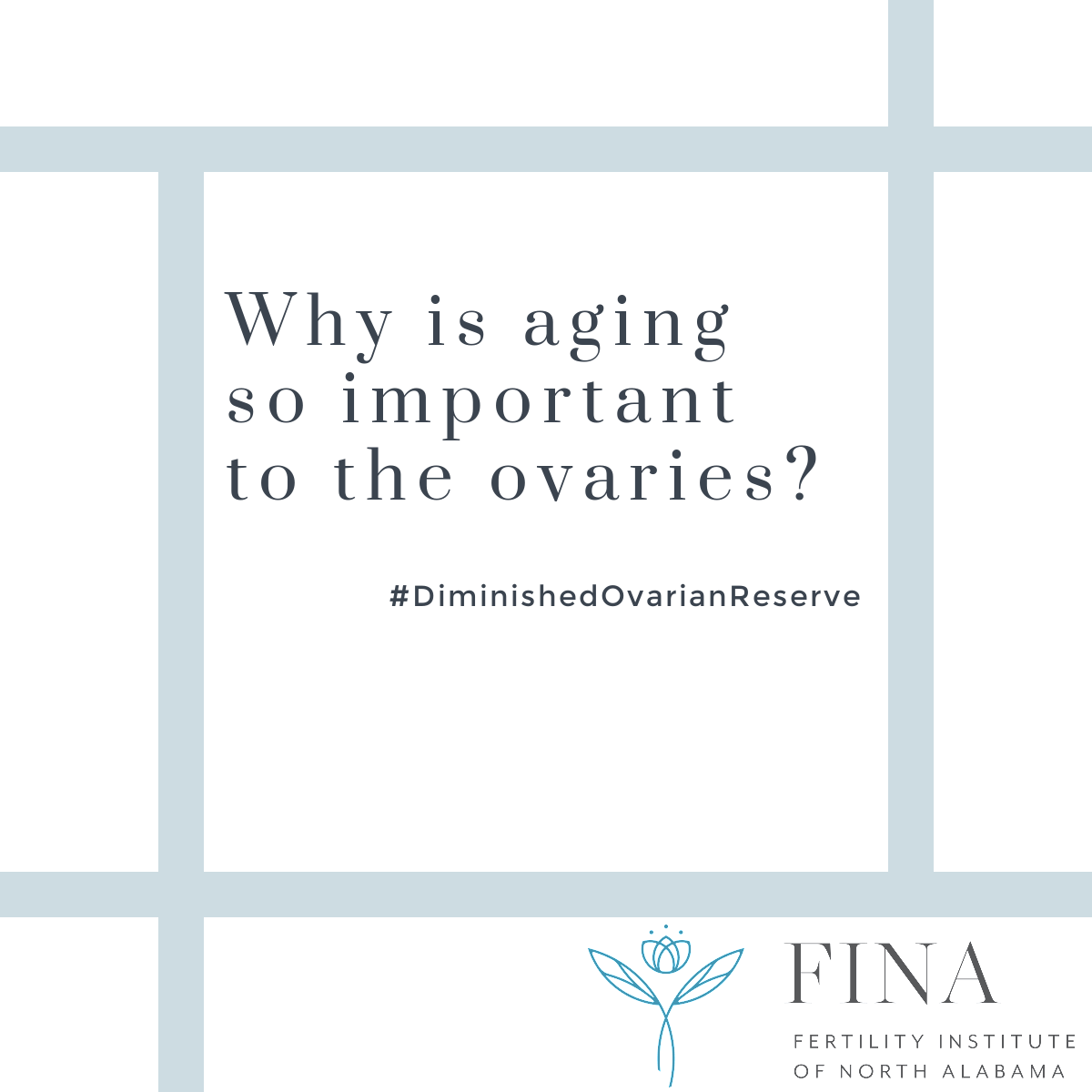This week we’re covering an article about Diminished Ovarian Reserve that Dr. D wrote for Inside Medicine Magazine.
Today we’re addressing the topic: Why is aging so important to the ovaries
Let’s see what Dr. D has to say: “Age is an important factor when talking about fertility because it inversely correlates with a woman’s chances of conception and live birth. Even though the average woman’s reproductive window is quite broad, the overall chances of conceiving begins declining much more rapidly around age 34. In other words, the hill down towards infertility becomes steeper. But it’s important to recognize that it is indeed a hill, not a cliff. So what does that mean?
Most of the declining live birth rates as a woman ages are due to the aging of her eggs. Aging has several effects on the eggs, including a steadily diminishing number of eggs, decreasing egg health, and an overall increase in the number of eggs that are genetically abnormal when ovulated. This all translates into a decreased ability to get pregnant (decreased pregnancy rate), stay pregnant (increased miscarriage rate), and deliver a baby (decreased live birth rate).”
EGG QUANTITY
It may be a sobering fact that a woman who is of reproductive age loses a group of 15-20 eggs each day on average. In fact, by the time a woman is 30 years old, only 12% of her egg population that she had at birth remains. By the time she is 40, she has only 3% of this population remaining. As a result of declining egg quantity, many women will begin to have more frequent periods as their ovarian reserve begins to deplete. This can sometimes mean that an egg will ovulate prior to it being fully mature. It is also not uncommon to skip ovulation cycles as egg reserve becomes very depleted.
EGG QUALITY
Just as the rest of our organs suffer from ‘wear and tear’ as we age, the ovaries are no exception. In an ovary, each egg depends on a cluster of cells around it called the cumulus complex for nourishment. These cumulus cells allow the essential nutrients and hormones from a woman’s bloodstream to reach an egg. As a woman ages, this group of nourishing cells begins to become smaller and smaller, causing each remaining egg to be less healthy than in younger eggs.
Join us back here tomorrow to learn *How does a woman know if she has diminished ovarian reserve? and
*What if I do have diminished ovarian reserve?
